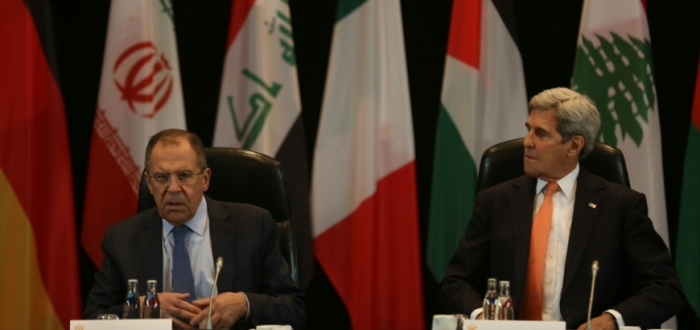There are increasing signs that the Munich agreement which the International Syria Support Group arrived at last week has died before it saw the merest attempts to implement it, particularly with the lack of compliance from the Assad regime and its ally Russia in stopping military operations in Syria and targeting civilians.
The international group, which includes 17 countries, agreed on three points — delivering humanitarian aid to areas under siege in Syria, stopping “hostile actions” in all Syrian territory in a week, and continuing the Geneva talks which were suspended by UN envoy Staffan de Mistura until February 25.
It seems Russia and the Assad regime mainly bear the failure of the implementation of the Munch agreement because of their continuation of “hostile actions” against essentially civilian areas in Aleppo and Idleb. It was expected, according to the agreement, these actions would be stopped, but Russia has persisted in targeting vital facilities where there are no militants, whether fighters of the Islamic State group — which Russia claims to be targeting with most of its strikes — or fighters of the Syrian opposition.
Russian warplanes destroyed two hospitals and two schools in the Idleb and Aleppo countrysides, killing 50 civilians, according to the United Nations. In an indication the Munich agreement had been rejected, Russian warplanes focused their bombardment on a school in Azaz in the northern Aleppo countryside which was sheltering displaced Syrians fleeing the attacks by regime forces, as well as continuing its bombardment in the Homs and Damascus countrysides.
It does not seem the international group has the will or desire to confront the Russian escalation in Syria, which will bury the Munich agreement. Some international and regional parties contented themselves with statements and in some cases a verbal escalation over the intensified bombardment by Russia and regime forces.
What also confirms that the Munich agreement will not see the route to implementation is that Russia and the regime continued striking areas suffering from sieges for more than two years, completely violating what the countries agreed upon at Munich regarding the necessity of delivering humanitarian aid to blockaded areas. As the pace of battle intensified, military developments over the last week reflect Russia and the regime’s desire to continue military operations because they consider this a “halting of the achievements” they are making in Aleppo.
This article was translated and edited by The Syrian Observer. Responsibility for the information and views set out in this article lies entirely with the author.


